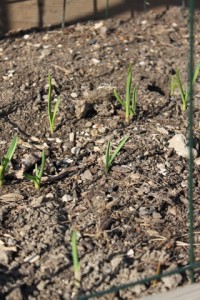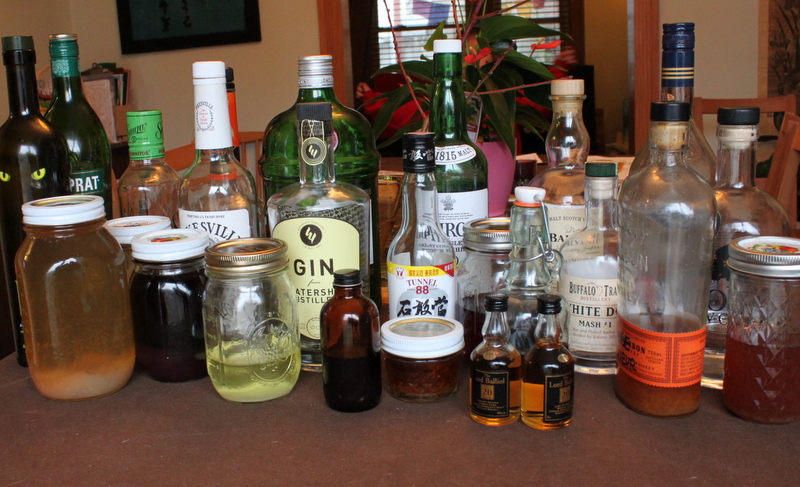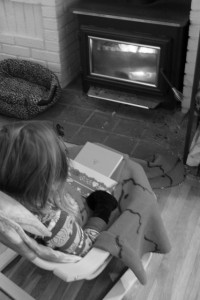I am so grateful for another guest post today while I teach at Franklin Park Conservatory. This musing on City, Country, Urban, Rural - How Do You Tell the Difference? is by Diana Hayes of Cookerati. Thanks Diana!
 I grew up in the city - a very long time ago, but I went to college and moved away and now live in a semi-rural area. My sister in law likes to say we live in the city because we are close to Columbus. I don't consider myself a city mouse though I drive into the city almost every day. I like the space between me and my neighbors but there are other things to consider. When my sister in law says you live in the city - I go over my checklist with her - Do you have city water? She does, I don't. Does she have street lights? She does, I don't. Does she have gas lines, water and sewer going to her house? She has all of those, our gas is propane, the water comes from a well, and sewer is our own aeration system. She has chickens though and a cow. She used to have a goat, but so did my neighbor who has horses too.
I grew up in the city - a very long time ago, but I went to college and moved away and now live in a semi-rural area. My sister in law likes to say we live in the city because we are close to Columbus. I don't consider myself a city mouse though I drive into the city almost every day. I like the space between me and my neighbors but there are other things to consider. When my sister in law says you live in the city - I go over my checklist with her - Do you have city water? She does, I don't. Does she have street lights? She does, I don't. Does she have gas lines, water and sewer going to her house? She has all of those, our gas is propane, the water comes from a well, and sewer is our own aeration system. She has chickens though and a cow. She used to have a goat, but so did my neighbor who has horses too.
Rachel (the host of Hounds in the Kitchen) considers herself an urban homesteader. Urban means city, right and I live in a rural area which means country, right? Or is it? What are the things that define the city and the country. Are we city mice or country mice? I grew up in Queens, we had our own compost area behind the garage and we grew our own vegetables in our yard like tomatoes, peppers, cucumbers, and lettuce. Our neighbors had a few fig trees, and grapes as well as their own vegetable garden. However, grass was a commodity worth gold. Really. There were signs up that said, "Keep off the grass!!!!!!!!!". People put up fences and walls to keep kids from walking on their grass. Then there were those that cemented over their yards in order to park their cars. So do our yards define us as city or country? I have a bigger yard now than I did when I lived in the city, but I have a friend who has the same size yard living right smack in the middle of Columbus.
What defines us as City or Country, rural or urban? My sisters came to visit once and said she couldn't sleep because it was too quiet and then couldn't sleep when she went back because home was too noisy. Is it the noise level? One person stopped my sister when she lived in Queens and told her that he always knew when it was summer because he could hear my grandmother's tv down the street. She was almost deaf, so she turned the television way up. Of course, she didn't have grain silos blowing fans or tractors plowing way past midnight to get the corn picked before a storm rolled in. Don't tell me it's the gunfire, because we are near a gun range and we hear guns a lot more often than anyone in the city - plus there is my neighbor with the semi-automatic that likes to shoot for fun. Lawn mowers? Yes, well when you have a couple of acres, the lawn mowers go more often than a little plot. In fact, when we lived in Queens we used lawn mowers that were people powered, not gas or electric. And since we are in the Rickenbacker flight path when we hear planes, they are very loud.
Is it the amenities? We couldn't get cable because we were too far from the road - but our neighbor who's house was closer to the road had it. So after twelve years, we dug our own trench and now we have it, but our neighbor on the other side is jealous. The power in our neighborhood used to go out all the time, so the electric company put us on a double grid. When the electric goes out it usually comes back on rather quickly, while Columbus may be out for hours. I will say that if you are in the city, you can usually get fine reception without cable and we happen to be in a totally dead spot without any reception. The same with our phones. We can hear a tornado siren from two counties though.
So what defines us as being urban or rural? Raising, and butchering your own meat? - Rachel, not me. Living next to corn fields? Me, definitely. Knowing your shopkeepers? That might be both of us. The real definition has to do with the number of people living in an area. That's it. Anyone can be a homesteader - urban, rural, small town or big city. What you make of your little or big piece of property is up to you (though it may be regulated by some silly laws). Next time my sister in law mentions my living in the city, I'll count all the houses along her road and mine. We're about even, I think.
I grew up in the city - a very long time ago, but I went to college and moved away and now live in a semi-rural area. My sister in law likes to say we live in the city because we are close to Columbus. I don't consider myself a city mouse though I drive into the city almost every day. I like the space between me and my neighbors but there are other things to consider. When my sister in law says you live in the city - I go over my checklist with her - Do you have city water? She does, I don't. Does she have street lights? She does, I don't. Does she have gas lines, water and sewer going to her house? She has all of those, our gas is propane, the water comes from a well, and sewer is our own aeration system. She has chickens though and a cow. She used to have a goat, but so did my neighbor who has horses too.
Rachel (the host of Hounds in the Kitchen) considers herself an urban homesteader. Urban means city, right and I live in a rural area which means country, right? Or is it? What are the things that define the city and the country. Are we city mice or country mice? I grew up in Queens, we had our own compost area behind the garage and we grew our own vegetables in our yard like tomatoes, peppers, cucumbers, and lettuce. Our neighbors had a few fig trees, and grapes as well as their own vegetable garden. However, grass was a commodity worth gold. Really. There were signs up that said, "Keep off the grass!!!!!!!!!". People put up fences and walls to keep kids from walking on their grass. Then there were those that cemented over their yards in order to park their cars. So do our yards define us as city or country? I have a bigger yard now than I did when I lived in the city, but I have a friend who has the same size yard living right smack in the middle of Columbus.
What defines us as City or Country, rural or urban? My sisters came to visit once and said she couldn't sleep because it was too quiet and then couldn't sleep when she went back because home was too noisy. Is it the noise level? One person stopped my sister when she lived in Queens and told her that he always knew when it was summer because he could hear my grandmother's tv down the street. She was almost deaf, so she turned the television way up. Of course, she didn't have grain silos blowing fans or tractors plowing way past midnight to get the corn picked before a storm rolled in. Don't tell me it's the gunfire, because we are near a gun range and we hear guns a lot more often than anyone in the city - plus there is my neighbor with the semi-automatic that likes to shoot for fun. Lawn mowers? Yes, well when you have a couple of acres, the lawn mowers go more often than a little plot. In fact, when we lived in Queens we used lawn mowers that were people powered, not gas or electric. And since we are in the Rickenbacker flight path when we hear planes, they are very loud.
Is it the amenities? We couldn't get cable because we were too far from the road - but our neighbor who's house was closer to the road had it. So after twelve years, we dug our own trench and now we have it, but our neighbor on the other side is jealous. The power in our neighborhood used to go out all the time, so the electric company put us on a double grid. When the electric goes out it usually comes back on rather quickly, while Columbus may be out for hours. I will say that if you are in the city, you can usually get fine reception without cable and we happen to be in a totally dead spot without any reception. The same with our phones. We can hear a tornado siren from two counties though.
So what defines us as being urban or rural? Raising, and butchering your own meat? - Rachel, not me. Living next to corn fields? Me, definitely. Knowing your shopkeepers? That might be both of us. The real definition has to do with the number of people living in an area. That's it.
Anyone can be a homesteader - urban, rural, small town or big city. What you make of your little or big piece of property is up to you (though it may be regulated by some silly laws). Next time my sister in law mentions my living in the city, I'll count all the houses along her road and mine. We're about even, I think.




 to extract coffee from the beans, motivated by the excellent flavor it produces, lack of electronics required, and ease of cleaning.
to extract coffee from the beans, motivated by the excellent flavor it produces, lack of electronics required, and ease of cleaning.
 The time is right for starting seeds, drawing up garden plot plans, and making tree orders. Like any obsessed gardener, I lay awake at night imaging the beauty that will bloom in the spring and lavish us with fruitful production through the summer.
Except I feel like I am cheating a lover.
The time is right for starting seeds, drawing up garden plot plans, and making tree orders. Like any obsessed gardener, I lay awake at night imaging the beauty that will bloom in the spring and lavish us with fruitful production through the summer.
Except I feel like I am cheating a lover.

